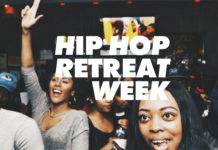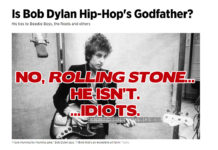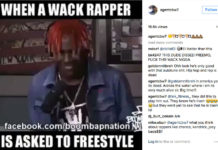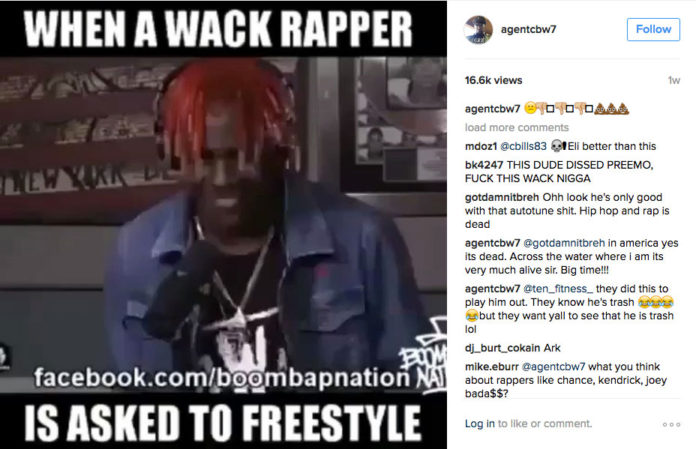It is completely understandable that, in a time when the over-commercialization, over-capitalization and rampant bastardization of the rap music industry by conglomerated media, traitorous enemies from within and pernicious cultural outsiders, hip-hop OGs would feel morally responsible to speak out against those who they feel poorly represent hip-hop’s traditional ideals and standards.
After all, the formulaic, often-dumbed-down musical output of struggling-to-stay-relevant, relic record labels and its accompanying distribution by dividend-driven radio stations, further fuel the false, but pervasive perception that hip-hop — the music — is worse than it has ever been, and that hip-hop — the culture — is powerless to combat this.
So it is no surprise to hear respected veterans of the craft speak on these issues, as legendary producer Pete Rock did recently. Through a much-publicized Instagram post, Pete Rock lambasted the work of Young Dolph, calling his skill, his reverence for the artform and indeed, his morals, into question.
Vulturous hip-hop media, who have seemingly learned little in the 20 years since media overhype contributed to the death of two of the genre’s most promising stars, jumped on another chance to capitalize on an ever-deepening generational divide throughout the culture while simultaneously pitting two people against each other with the salivating ferocity of ravenous hyenas.
Oh, the think pieces this would allow them to publish! You know. The kinds that loudly proclaim one of the extreme positions (or the other… or both), offering no real analysis, only a softball lob to entice the rabid rebuttal that internetters thrive on. And of course, this is seldom for the purpose of reasonable discourse on the matter. No, this would be for pageviews and social shares, to entice more to follow these outlets so that they may wash, rinse and repeat and deliver the next fabricated or unnecessarily amplified controversy for readers to feast on.
Cancerous hip-hop media critique aside, Pete Rock’s comments did touch on a valid issue.
Overall, responses to his statement ranged, as responses to almost everything these days, from far extreme to the other far extreme.
Many agree wholeheartedly with the iconic producer, and echo his sentiment, yearning for the days of hip-hop exemplified during its fabled “Golden Era.”
Yet many, including other hip-hop elders, feel that too much is being made of the new artists, and that throwing “mumble rap” critique around only emphasizes the perception that hip-hop OGs are bitter, out-of-the-loop ‘haters.’
Personally, I believe, as I often do when it comes to these kinds of polarizing debates, that the truth is somewhere in the middle. There is a divide within the music and culture that often sits on either side of a generational line, a crime that has largely been perpetrated by the aforementioned accomplices. Remember, these companies and individuals care little about passing down history or tradition. When they look at hip-hop, they do not see a culture or a community of communities, only lucrative entertainment opportunities. It is no surprise that an assortment of young artists who have come up under these influences and are creatively controlled by these entities would have little knowledge, or care, about the giants on whose shoulders they unknowingly stand.
They should be schooled, so kudos to folks like Pete Rock who attempt to do so.
However, the harsh truth is that criticism about “today’s music” can be chalked up to — and pretty much dismissed by — subjectivity. There are arguments to be made for the lack of ingenuity on the airwaves that can be easily countered by the overwhelming evidence that the genre’s overall current output contains its most inventive and progressive material to date, by far.
Critics crave originality and creativity, yet lambaste new artists for doing things that others haven’t done. Whether it be what they would call an unholy merging of rapping, singing, autotune and (perhaps) drug-induced slurring or outrageous attire on a album cover, the fact is, these artists are fairly expert at getting attention, a skill that often overshadows raw talent (or things like, say, political qualifications **coughtrumpcough**) across much of society in this hugely interconnected, media and hype driven information age.
So while speaking out against these transgressions is perfectly reasonable, the surrounding debate quickly becomes deafening and defeating. Hip-hop advocates might be better served to spend their energy and influence seeking out more effective ways to address or potentially solve some of these issues, instead of simply adding to the noise.
However, OGs will always feel the need to speak. They should. And we should always listen. They’ve earned that. Despite hip-hop media’s aim to amplify controversy, often the issues being raised are real, and as hip-hop continues to grow up, it can hopefully find better ways to deal with them without having to wade in the often-mediocre landscape of internet debate or radio station trolling.
There is, however, one thing that any older hip-hop advocate, critic or commentator really should do when they offer their perspective about the state of the music and culture they live and love.
It is something that they rarely do, particularly when speaking off the cuff, but knowing how easily a confrontational stance can propagate throughout the media circuit, it is something they should really consider when they make such statements.
They can name someone who is doing music that they like.
The danger in being solely negative, pinpointing an artist or a style they don’t personally approve of, goes beyond simply being perceived as a “bitter old head.” Statements like these, especially when spread and repeated, have the unfortunate by-product of increasing the overall perception that there is simply no noteworthy rap being created in 2016.
Aside from obligatory references to Kendrick, J. Cole and lately, De La Soul, with so many believing that the genre has nothing to offer in terms of quality, it behooves true advocates of the genre and culture to use whatever reach they have to highlight others who do offer the kind of music and message they think is worthy.
Because there are others, and they could use that signal boost.
OGs and other high-profile folks who speak on hip-hop, knowing their words will attract the attention of many, should not waste the opportunity to uplift someone else.
They should call out whoever they like, but they should also offer a suitable alternative to all the people who are likely to agree with the sentiment.
One can see it all throughout the comments in response to Pete Rock’s Young Dolph and Lil Yachty criticism, comments that repeatedly paraphrased the “hip-hop/rap is dead” refrain.
Yet ironically, lesser-known artists are creating phenomenal, progressive hip-hop music that some of these hip-hop heads might enjoy. These are artists who constantly have to fight to erase the perception that they don’t exist. This perception gets further ingrained in society every time a meme is shared or a statement is made that disparages an artist or a style, and declares that example as indicative of “today’s hip-hop,” ignoring the chance to give a different perspective and uplift a worthy artist.
That, in of itself, is part of the problem.
Be part of the solution.
—
Editor’s note: Manny Faces is the founder and executive director of The Center for Hip-Hop Advocacy, a non-profit organization and advocacy group that seeks to identify, address and solve some of these issues. Find out more at www.hiphopadvocacy.org
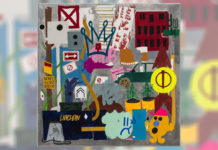

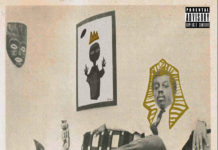
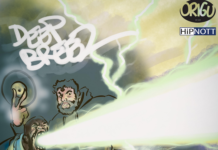

![The Underachievers – Crescendo [VIDEO]](https://www.birthplacemag.com/wp-content/uploads/2017/08/hqdefault-2-218x150.jpg)


![Fat Joe & Remy Ma ft. The-Dream – Heartbreak [VIDEO] Fat Joe Remy Ma The Dream - Heartbreak Video](https://www.birthplacemag.com/wp-content/uploads/2017/05/fat-joe-remy-ma-218x150.jpg)
![JSWISS featuring Chandanie – LML [VIDEO] JSWISS featuring Chandanie - LML [VIDEO]](https://www.birthplacemag.com/wp-content/uploads/2017/05/JSWISS-218x150.jpg)

![Akinyemi Ends Summer With “Summers” EP Release Show [9-17-17] Akinyemi 'Summers' EP release show at Brooklyn Bazaar](https://www.birthplacemag.com/wp-content/uploads/2017/09/summers-featured-218x150.jpg)
![4th Annual NYC VS EVERYBODY Yacht Party [9/16/17] #VSYacht 4th annual NYC VS Everybody Yacht Party#VSYacht](https://www.birthplacemag.com/wp-content/uploads/2017/09/vsyacht-218x150.jpg)

